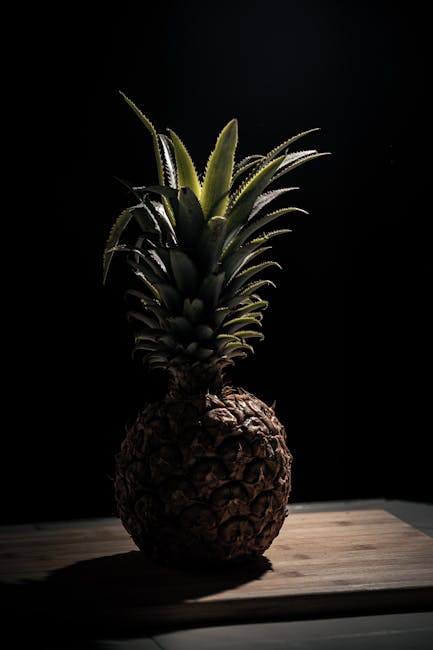A Taste of Paradise: Exploring the Vibrant World of Jamaican Fruits
Jamaica, the island of wood and water, is renowned for its vibrant culture, reggae rhythms, and breathtaking landscapes. But beyond the beaches and bustling cities lies a treasure trove of exotic fruits, bursting with flavor and brimming with unique nutritional benefits. This exploration dives deep into the delicious world of Jamaican fruits, unveiling their taste profiles, health advantages, and cultural significance.
The Sweetness of the Tropics: Popular Jamaican Fruits
Jamaica’s tropical climate provides the perfect conditions for a wide variety of fruits to flourish. From the familiar mango to the more exotic ackee, the island offers a truly unique fruit experience. Let’s explore some of the most popular choices:
Mangoes: The King of Jamaican Fruits
No discussion of Jamaican fruits is complete without mentioning the mango. Jamaica boasts numerous varieties, each with its own distinct flavor profile. From the sweet and succulent Julie mango to the more fibrous Haden, these fruits are a staple in Jamaican cuisine, enjoyed fresh, in juices, smoothies, and even savory dishes. Their rich Vitamin C and antioxidant content contribute to their widespread popularity.
Ackee: The National Fruit
Ackee (Blighia sapida) holds a special place in Jamaican culture, designated as the national fruit. However, it’s crucial to note that ackee must be cooked properly; consuming unripe ackee can be toxic. When prepared correctly, ackee offers a unique, creamy texture and subtly sweet flavor. It’s often enjoyed as a part of the national dish, Ackee and Saltfish, a breakfast staple.

Guava: A Versatile Delight
Guavas (Psidium guajava) are another ubiquitous Jamaican fruit, boasting a sweet and slightly tart flavor. They can be enjoyed fresh, made into jams, jellies, juices, or even used in savory dishes. Their high vitamin C content and fiber make them a nutritional powerhouse.
Pineapple: A Tropical Classic
Jamaica’s pineapples are renowned for their juicy sweetness and aromatic fragrance. These fruits are widely used in desserts, juices, and cocktails, adding a vibrant tropical touch to any culinary creation. Their bromelain content aids digestion, adding another health benefit to their appealing taste.
Soursop: A Tangy Treat
Soursop (Annona muricata), also known as graviola, possesses a unique, tart, and slightly acidic flavor. Its creamy, white flesh is enjoyed in juices, smoothies, and ice cream. It’s also valued for its purported medicinal properties, though more research is needed in this area.
Breadfruit: A Hearty Staple
Breadfruit (Artocarpus altilis) isn’t technically a fruit in the botanical sense, but it’s often treated as one. This starchy fruit has a neutral flavor and can be prepared in various ways, from roasting and frying to boiling and baking. It’s a versatile ingredient often used as a substitute for potatoes or bread.
Beyond the Familiar: Lesser-Known Jamaican Fruits
While mangoes and pineapples are commonly known, Jamaica offers a wealth of lesser-known fruits waiting to be discovered. These often feature unique flavors and textures, adding an element of surprise and adventure to the culinary experience.
June Plum: A Sweet and Tart Surprise
The June plum ( Spondias purpurea) is a small, oval-shaped fruit with a sweet and tart flavor. Its slightly acidic taste makes it a refreshing snack on a hot day.
Tamarind: Tangy and Pungent
Tamarind (Tamarindus indica) pods contain a sweet and tangy pulp used in chutneys, sauces, and beverages. Its unique flavor adds complexity to both sweet and savory dishes.

Star Apple: A Jewel-Toned Treat
The star apple (Chrysophyllum cainito) boasts a striking appearance, with its star-shaped interior revealed upon cutting. The taste varies depending on the variety, ranging from sweet to slightly tart.
The Cultural Significance of Jamaican Fruits
Jamaican fruits aren’t just delicious; they’re deeply ingrained in the island’s culture and history. They feature prominently in traditional dishes, folklore, and celebrations. Many fruits are associated with specific times of the year, reflecting the agricultural rhythms of the island.

- Festivals and Celebrations: Many Jamaican festivals feature fruits as a central component, reflecting their abundance and significance.
- Traditional Medicine: Some Jamaican fruits have been used for generations in traditional medicine, showcasing their medicinal properties.
- Folklore and Storytelling: Jamaican folklore is replete with stories featuring fruits, adding to their cultural richness.
The Health Benefits of Jamaican Fruits
Beyond their delicious taste, Jamaican fruits are packed with vitamins, minerals, and antioxidants, offering a range of health benefits. Many are rich in Vitamin C, fiber, and other essential nutrients contributing to overall well-being.
- Boosting Immunity: Fruits rich in Vitamin C, such as mangoes and guavas, help strengthen the immune system.
- Improving Digestion: High-fiber fruits like guavas aid digestion and prevent constipation.
- Protecting against Disease: Antioxidants found in many Jamaican fruits help protect cells from damage, reducing the risk of chronic diseases.
Exploring Jamaican Fruits: A Culinary Adventure
Whether you’re a seasoned foodie or a curious newcomer, exploring the diverse world of Jamaican fruits is a culinary adventure waiting to unfold. From the familiar mango to the exotic ackee, each fruit offers a unique flavor and texture, adding a touch of tropical paradise to your taste buds. So, take a bite, savor the flavors, and discover the rich heritage and health benefits of these vibrant treasures from the island of Jamaica.

